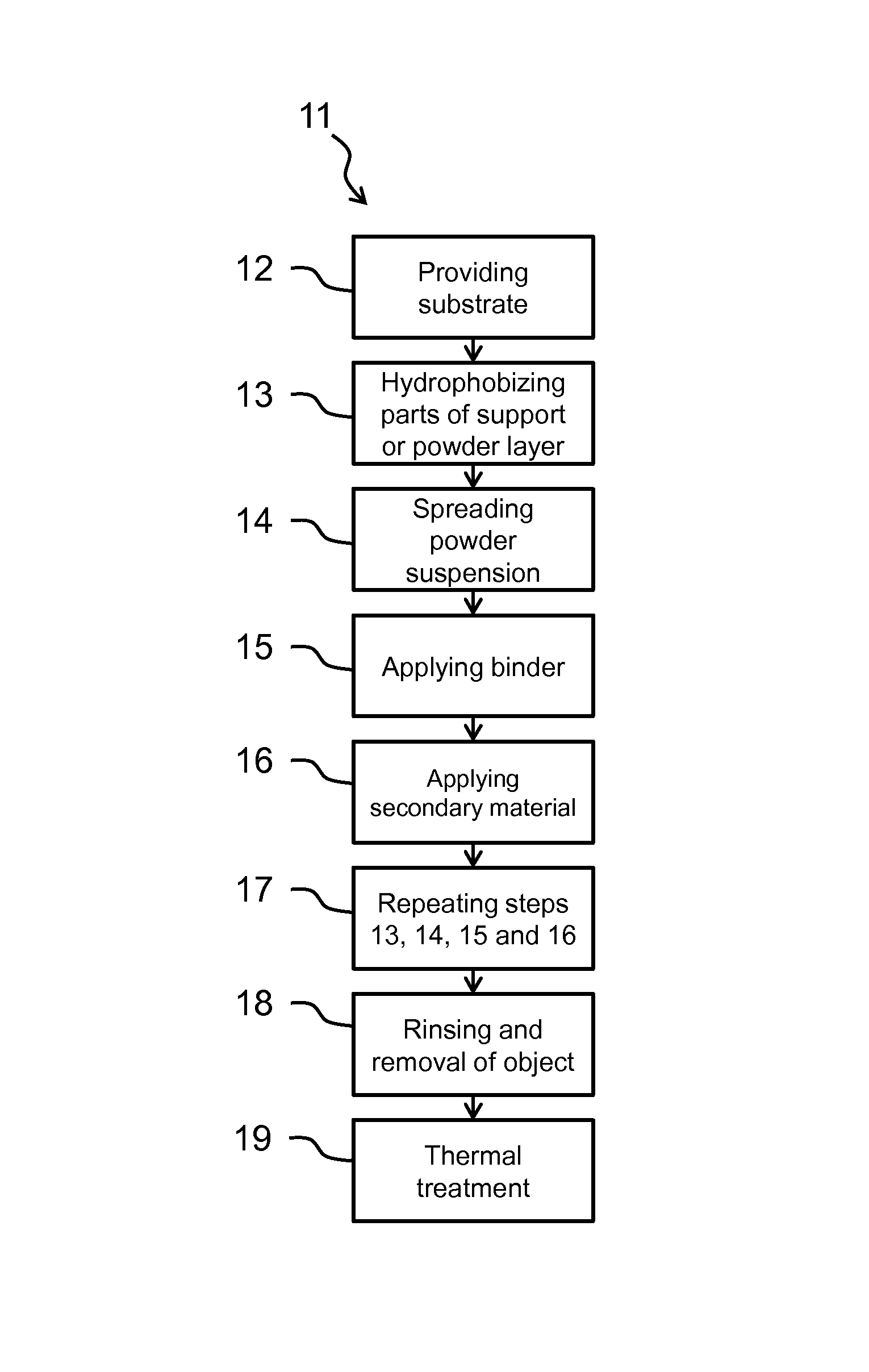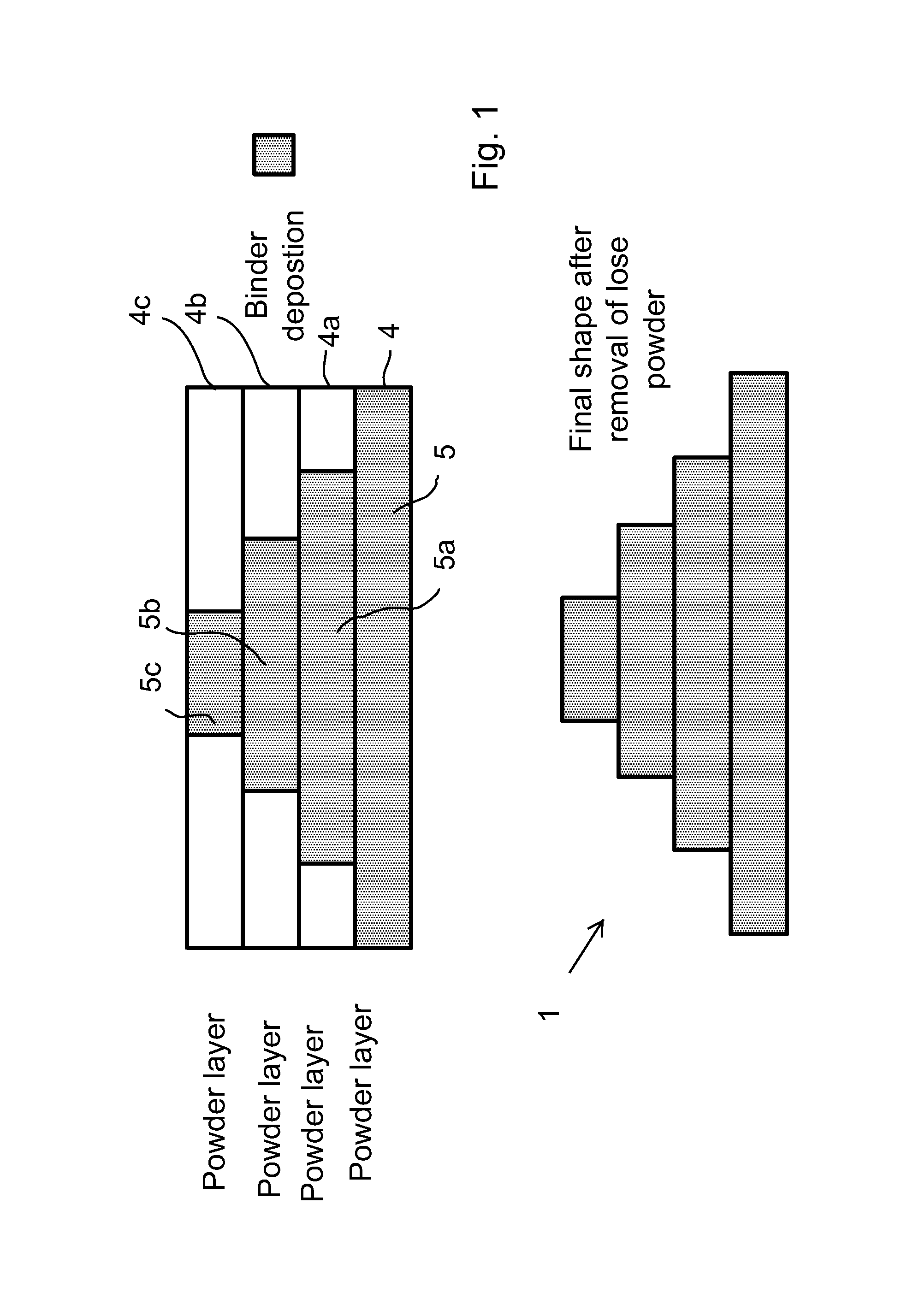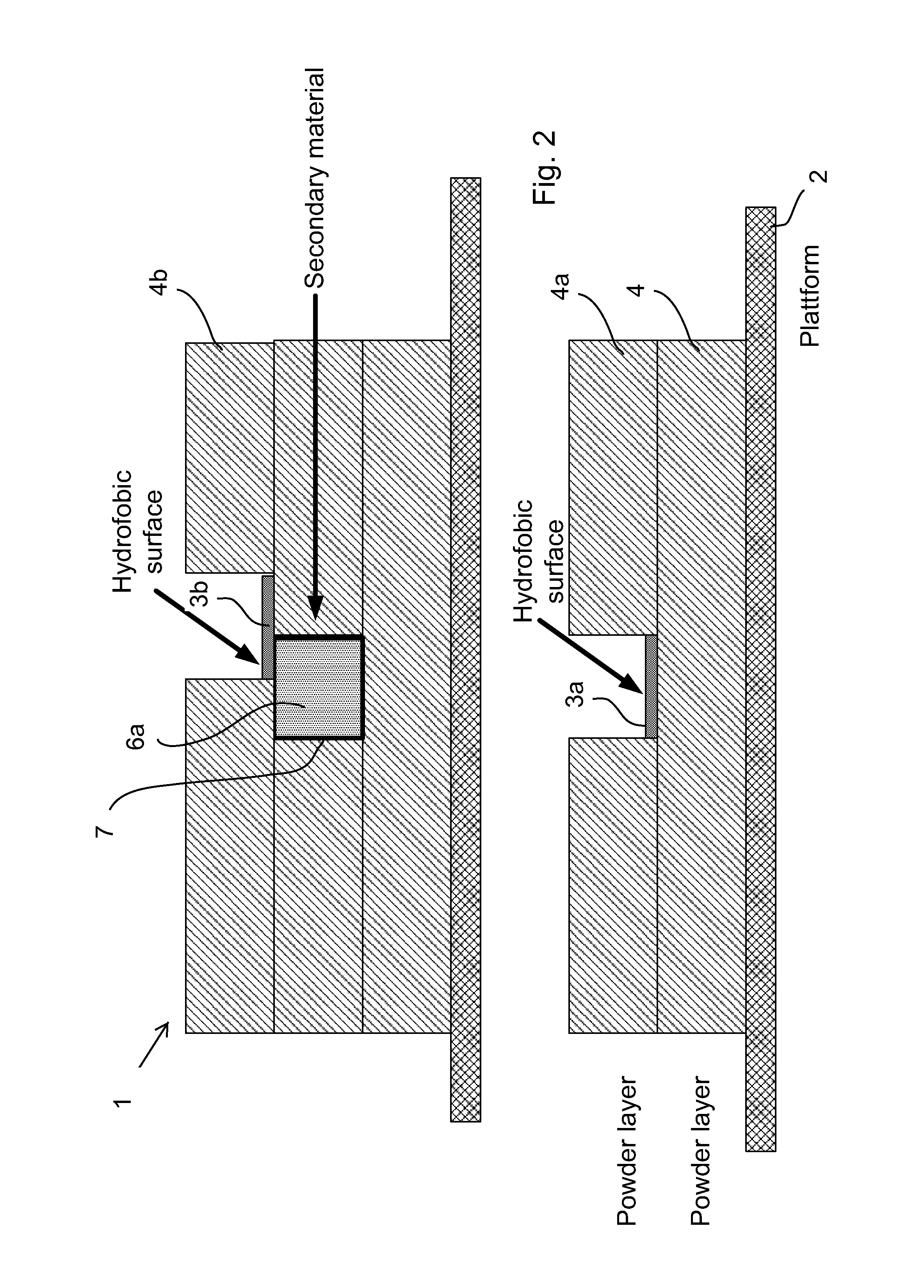Layered manufacturing of free-form multi-material micro-components
a free-form, multi-material technology, applied in the direction of additive manufacturing with solid and fluid, dentistry, electrical equipment, etc., can solve the problems of inherently slow selective solidification, limited to coarse powders, and very fast method
- Summary
- Abstract
- Description
- Claims
- Application Information
AI Technical Summary
Benefits of technology
Problems solved by technology
Method used
Image
Examples
example 1
[0034]In a simple model experiment a doctor blade casting station was used instead of slot die for manual application of layers. On a plate of sintered alumina a metallic pattern was screen printed. The pattern consisted of straight conductor lines in different dimensions finished by a contact point, FIG. 3. Printing was done with a silver paste to have good electrical conduction.
[0035]The plate with the conductor was placed in the casting station. An alumina suspension (40 vol % AKP 30, Sumitomo Chemicals), in water with a dispersing agent (0.35% Dolapix PC21) was cast with a doctor blade with 80 μm gap. This casting created a film with fine alumina powder on the plate.
[0036]Holes for vias were created by dispensing of a hydrophobic liquid. The hydrophobic liquid was a fluorocarbon based liquid. On areas where the hydrophobic liquid was applied the alumina water-based suspension did not wet and thus it avoided those areas. Holes are created that penetrate the dry alumina powder lay...
example 2
[0039]A machine for layer manufacturing was built. It consists of a table with linear actuators (NSK and HIWIN) that can move a stage in x-y-z directions. The movable stage is controlled with a PLC controller (Beijer).
[0040]The movable stage is fitted with a slot die (Premier Dies) fed by a ceramic suspension under pressure with a precision pump (such as a precision gear pump). The ceramic suspension is similar to example 1 but the solids concentration was adjusted to a viscosity suitable for the slot die.
[0041]Inkjet heads (HP) with a drive electronic (Megatech Electronic) was fixed to the stage to be able to print both a temporary latex binder and a hydrophobic liquid.
[0042]Dispensers were also fitted to the movable stage and filled with conductive paste.
[0043]A computer was programmed to control the slot die through the PLC and to transfer printing information to drive printing electronic for each layer. The movable stage was then raised before deposition of the next layer.
[0044]...
PUM
| Property | Measurement | Unit |
|---|---|---|
| thickness | aaaaa | aaaaa |
| size | aaaaa | aaaaa |
| particle size | aaaaa | aaaaa |
Abstract
Description
Claims
Application Information
 Login to view more
Login to view more - R&D Engineer
- R&D Manager
- IP Professional
- Industry Leading Data Capabilities
- Powerful AI technology
- Patent DNA Extraction
Browse by: Latest US Patents, China's latest patents, Technical Efficacy Thesaurus, Application Domain, Technology Topic.
© 2024 PatSnap. All rights reserved.Legal|Privacy policy|Modern Slavery Act Transparency Statement|Sitemap



